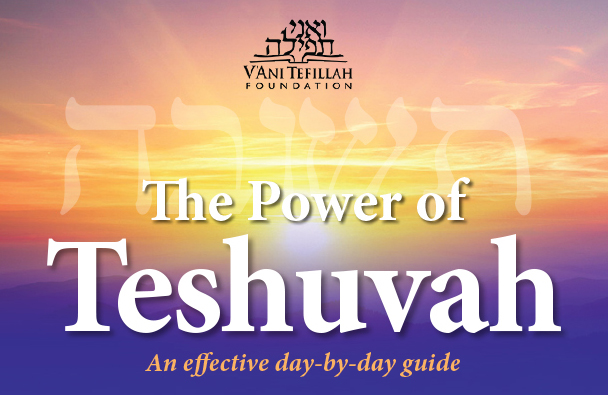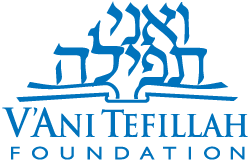The Power of Teshuvah – Day 5

Day 5
Hashem’s Kindness
On Yom Kippur, the Kohen Gadol spent the day in intense, physically demanding service to God. He atoned for himself, his family and the nation; he entered the Holy of Holies; he pronounced God’s ineffable Name. Each of his actions had to be perfect in performance and intent. His failure to perform his service properly could cost his life, and deny the nation forgiveness for their sins.
It was a day of unrelenting exertion. Yet, when the Kohen Gadol emerged, his beaming countenance was described with superlatives. Among them: “lightning bolts emanating from the radiance of the angels,” “the crown that is placed on a king’s forehead,” and “the graciousness of a bridegroom’s face.”
In the secular world of illusion, joy and concerted effort are often mutually exclusive terms. In the actual world of truth, however, exertion, disappointment — sometimes even desperation — are often the fertile soil from which the deepest joy springs. Teshuvah, from the secular perspective, is a dreary concept bound by emotions such as guilt and regret. From the Jewish perspective, however, teshuvah is the greatest gift God has granted us: to erase our misdeeds and to emerge clean before Him.
Teshuvah is “among Hashem’s kindnesses to His creations.” Knowing that humans are imperfect, God provided us with a way to save ourselves from the consequences of our misdeeds. In fact, as the prophet assures us, even if one makes the biggest mistake a Jew can make, offending God and rebelling against Him, He does not close the doors of teshuvah.
Everything God does is a kindness, yet singling out teshuvah as a kindness of God may seem redundant. This point is emphasized because we are the beneficiaries of God’s kindness, therefore we must do teshuvah with happiness. We should see it as an opportunity to become greater, more complete individuals, even if we have sinned.
Once we undertake the teshuvah process, we are likely to find that it is liberating; it releases us from all the negativity in our past and sets us free to reach our full potential. We can compare the effort involved to the medication taken by someone disabled by illness. He does what needs to be done gladly, because he knows that this will restore him to full health and life.
Every mitzvah should be done with happiness; however, the happiness is usually external to the mitzvah. With teshuvah, the mitzvah itself creates happiness when we realize that our sins are forgiven and we fully open the door to receive the abundant benefits of this world as well as of the World to Come.
During the days of Elul and the Aseres Yemei Teshuvah, the gift of teshuvah is before us. We may, however, be inclined to leave the gift in its wrapping, mistakenly believing that it contains nothing other than the struggles of self-examination and self-improvement. But if we grab this gift and open it, we will find that it is exactly what we want and what we need to bring us a new year of life, health, prosperity, and happiness.
Points to Ponder:
-
-
- There is no contradiction between difficulty and joy. In fact, facing and overcoming difficulty is one of the surest paths to true joy.
- Teshuvah can be arduous, and yet it is God’s greatest gift to us, for it enables us to renew ourselves and our connection to God.
- Teshuvah is a gift, and should be done with happiness.
-

